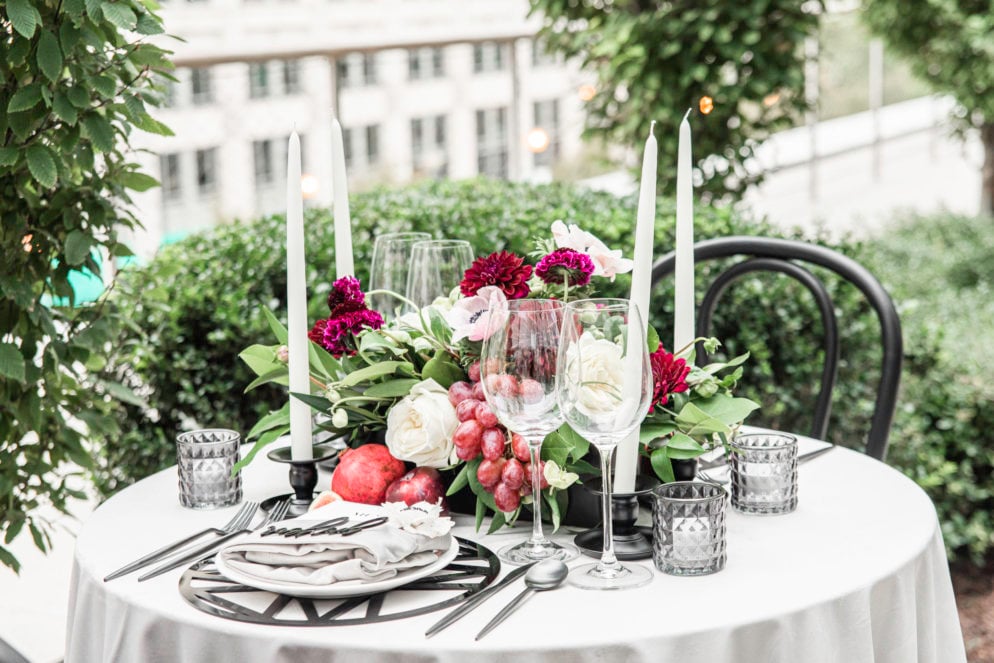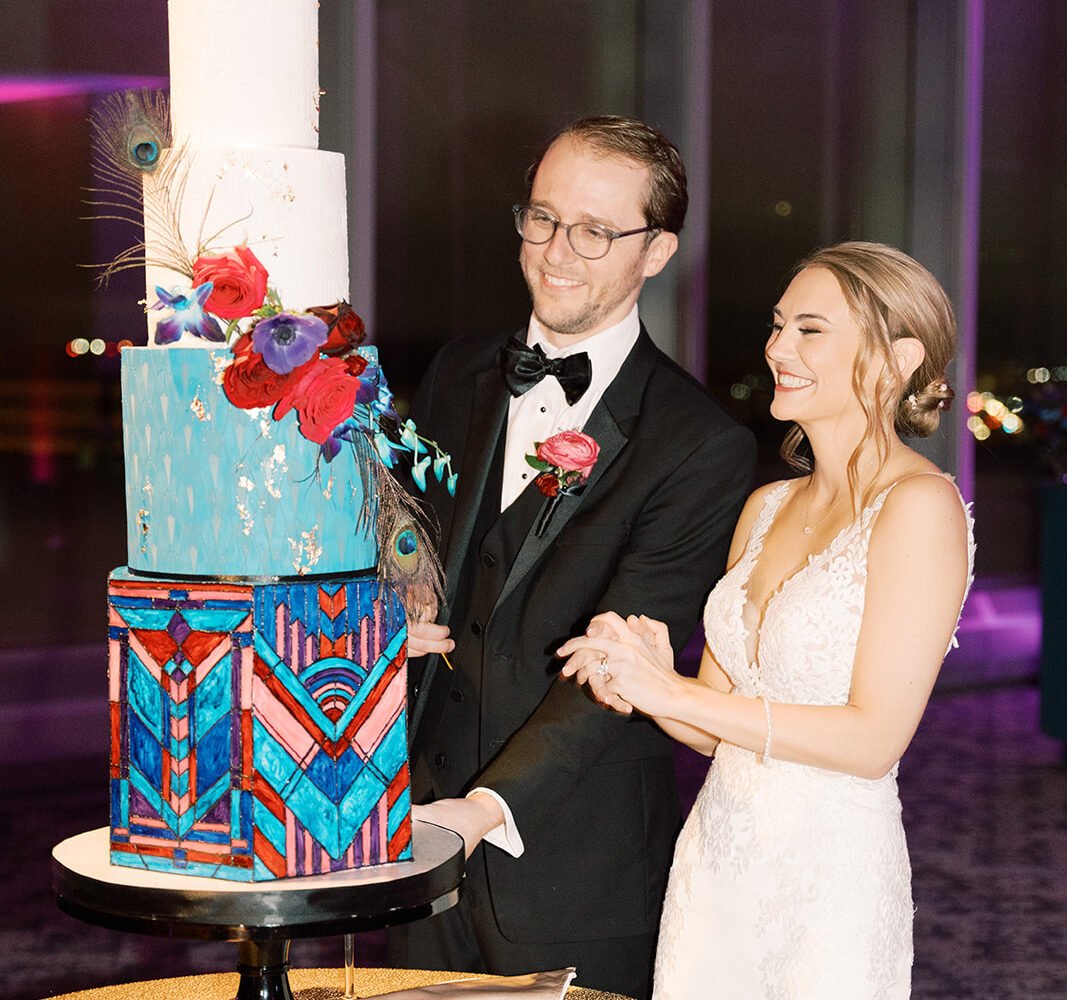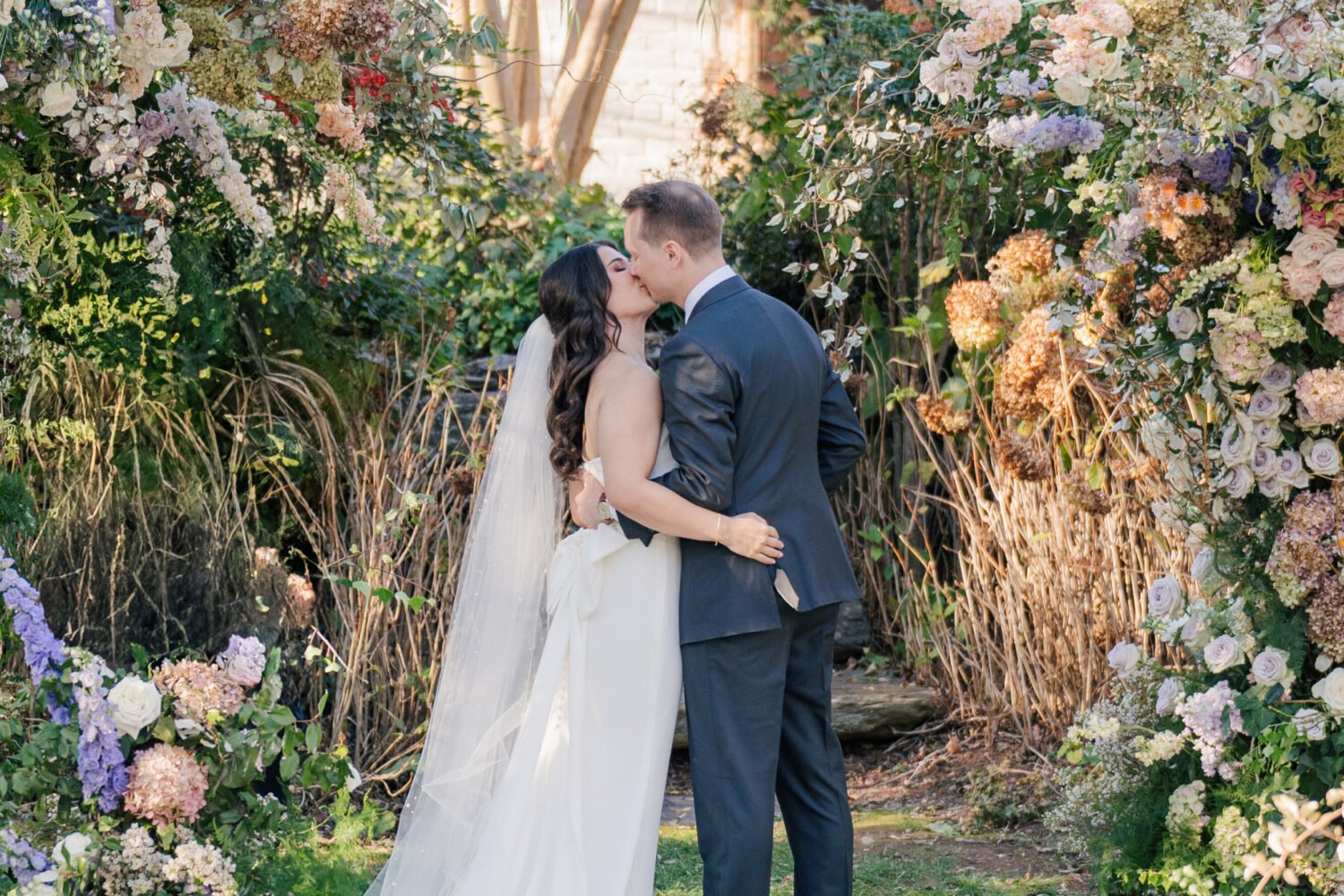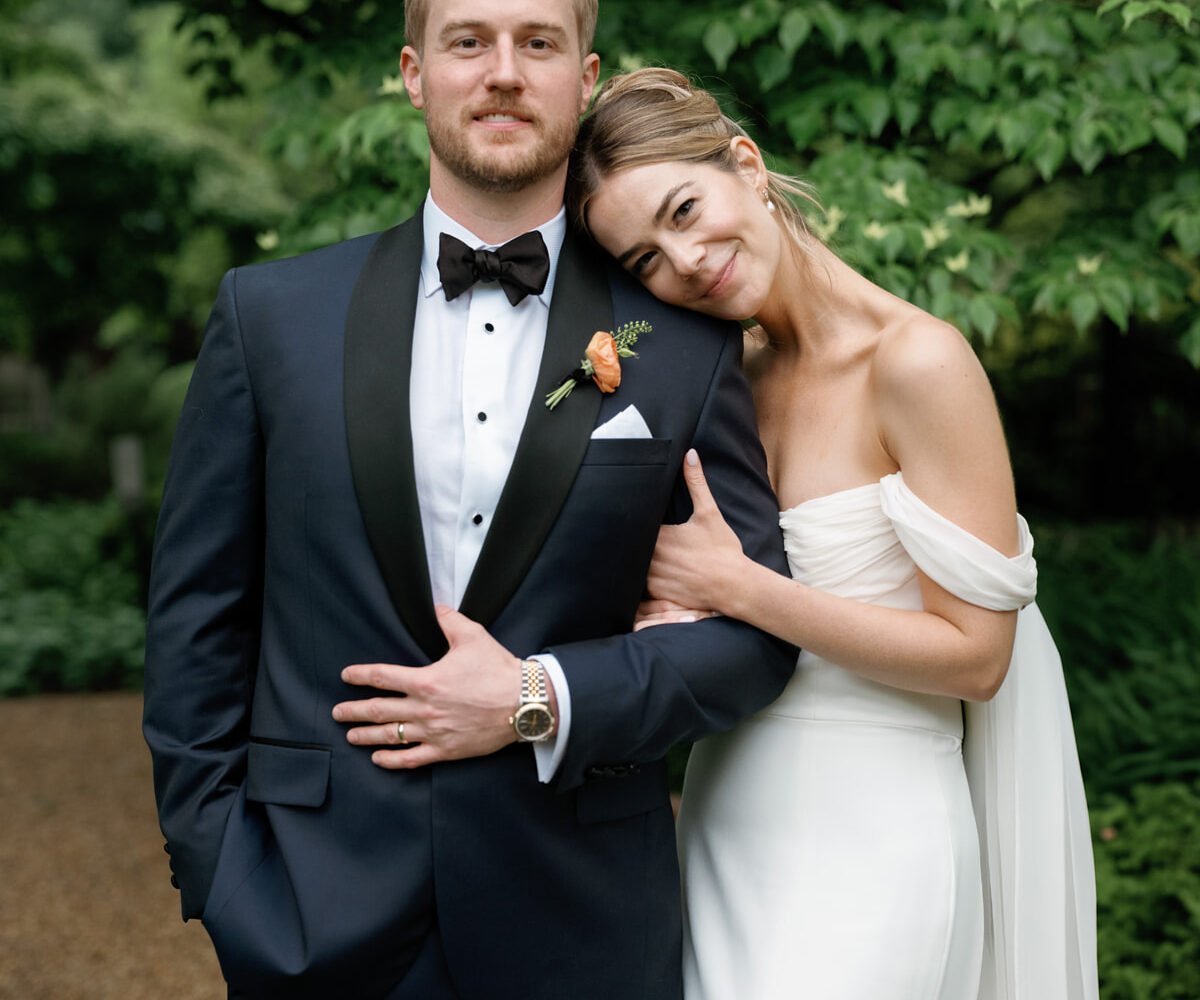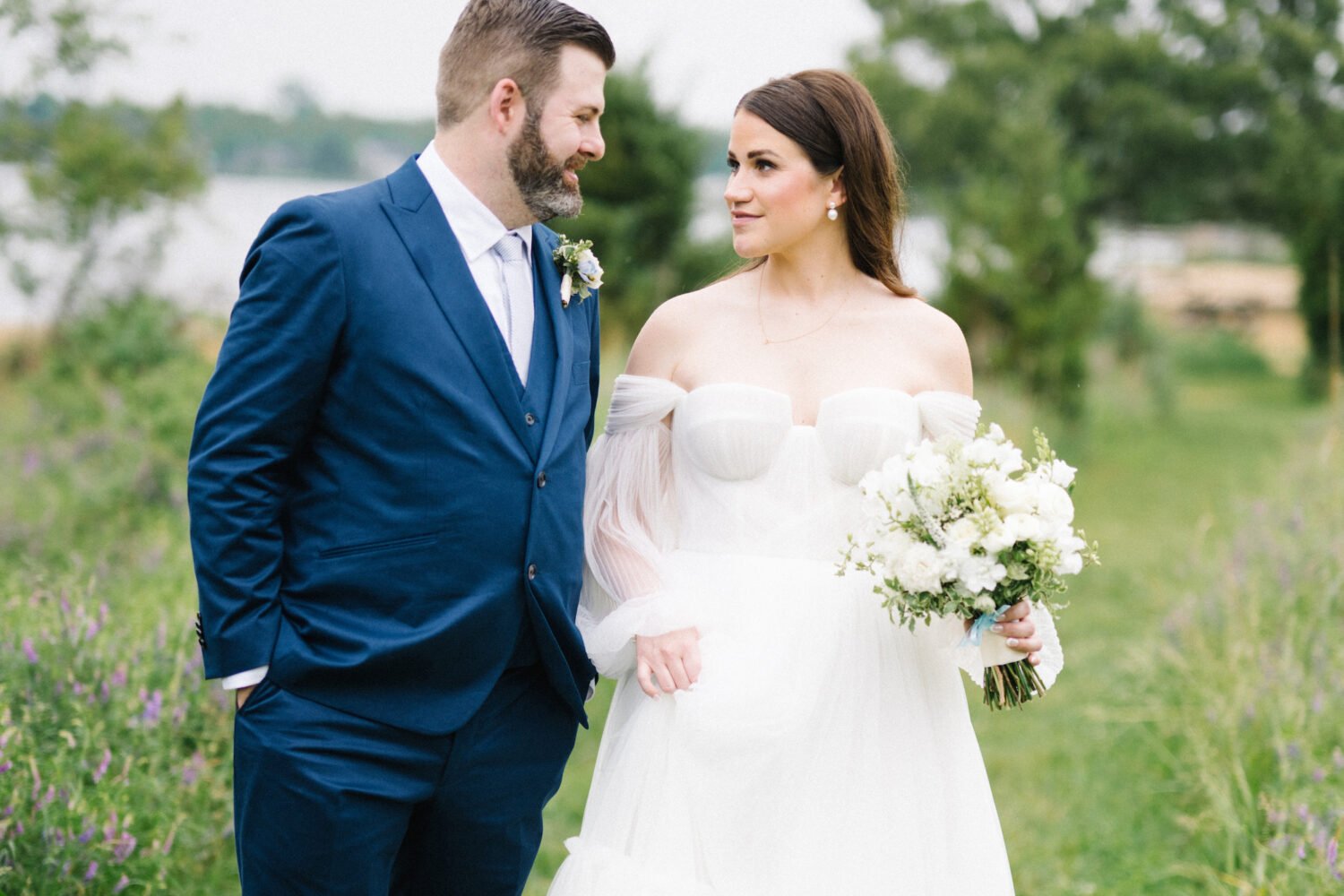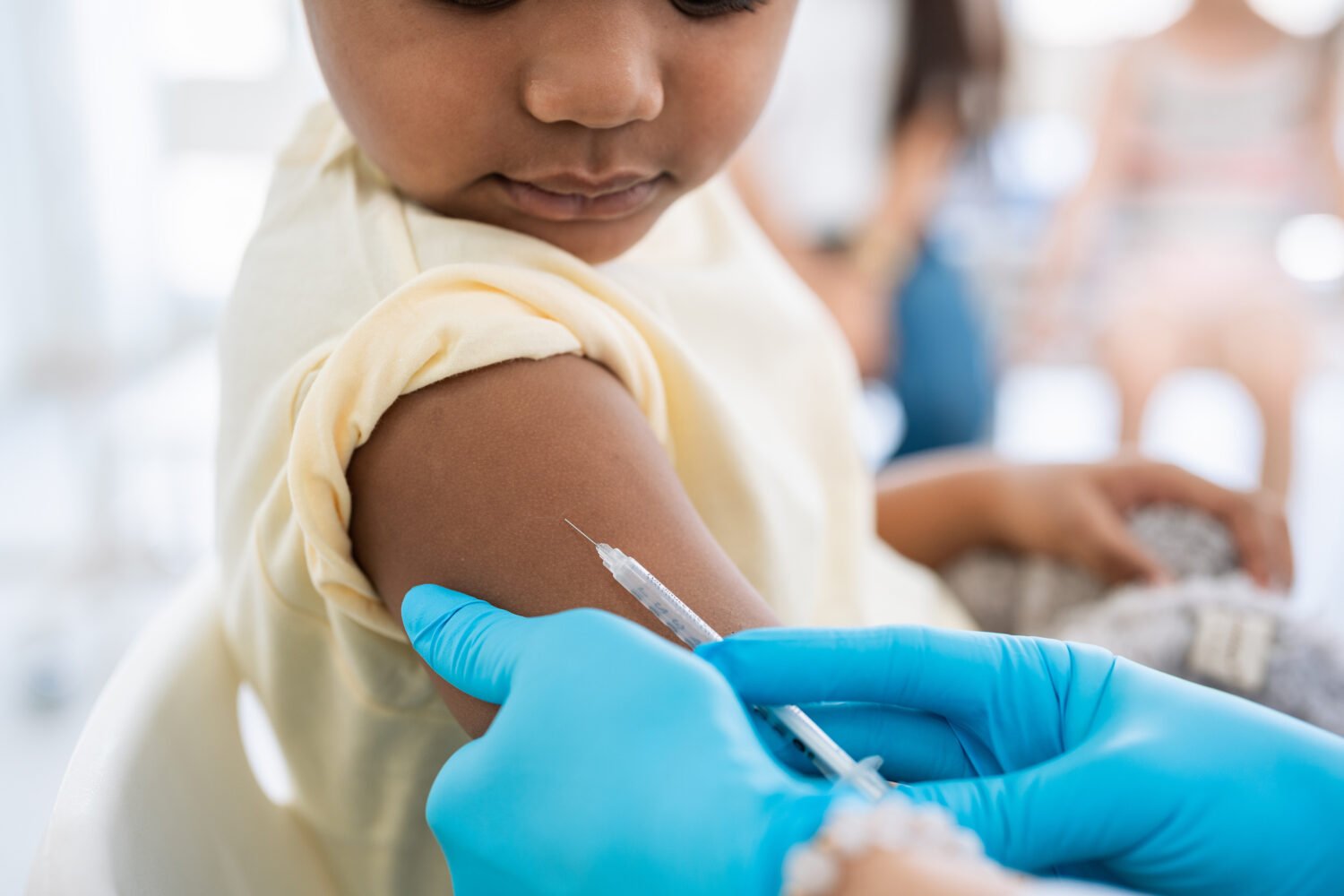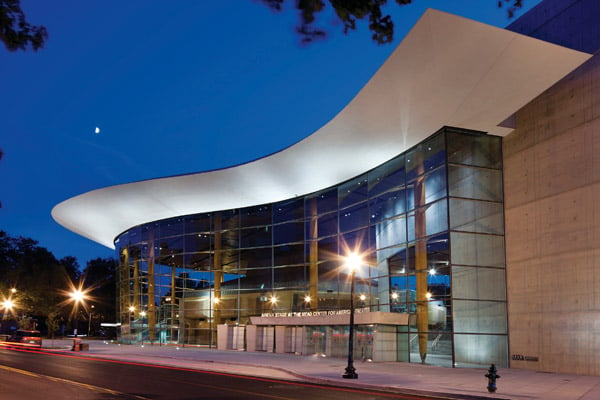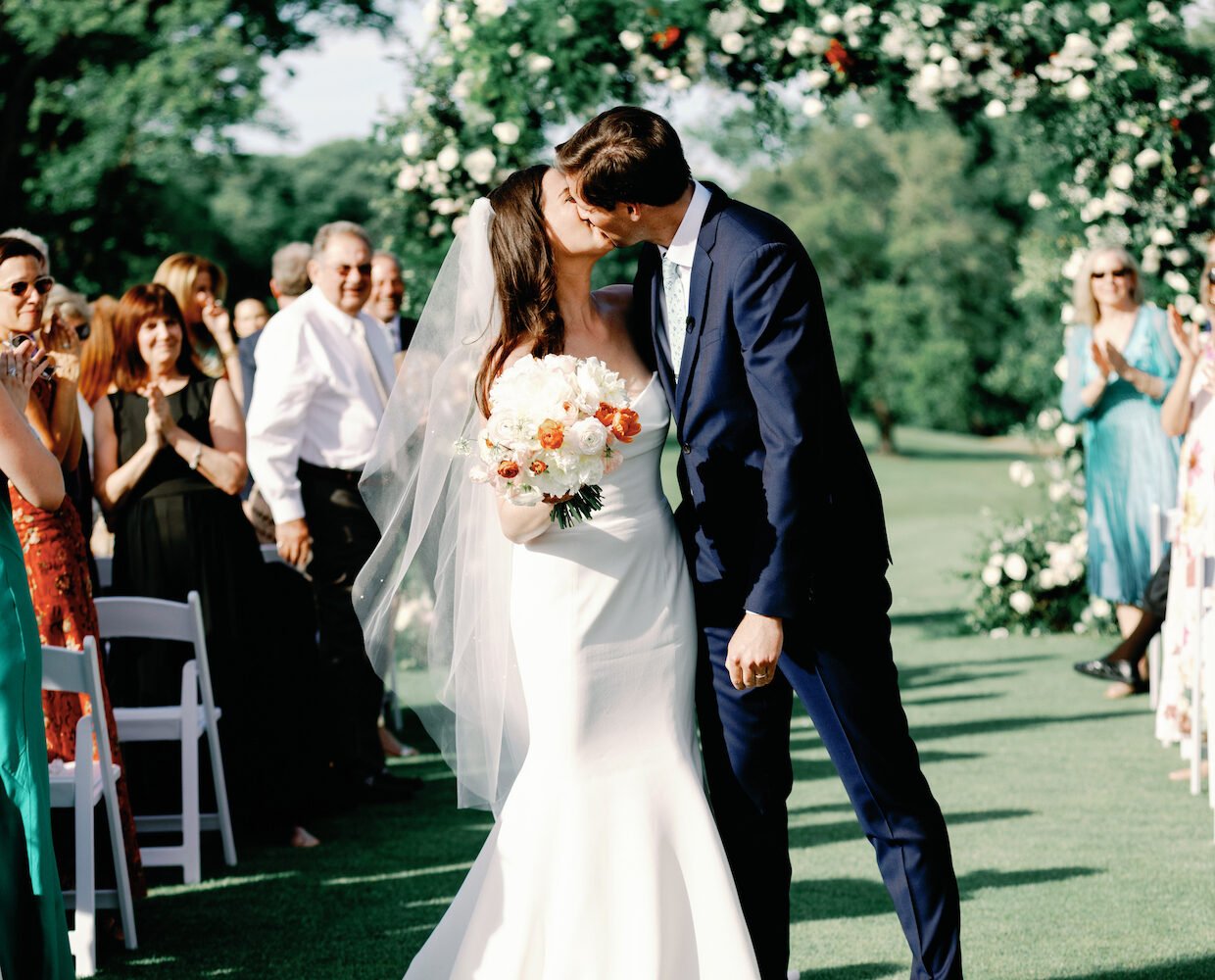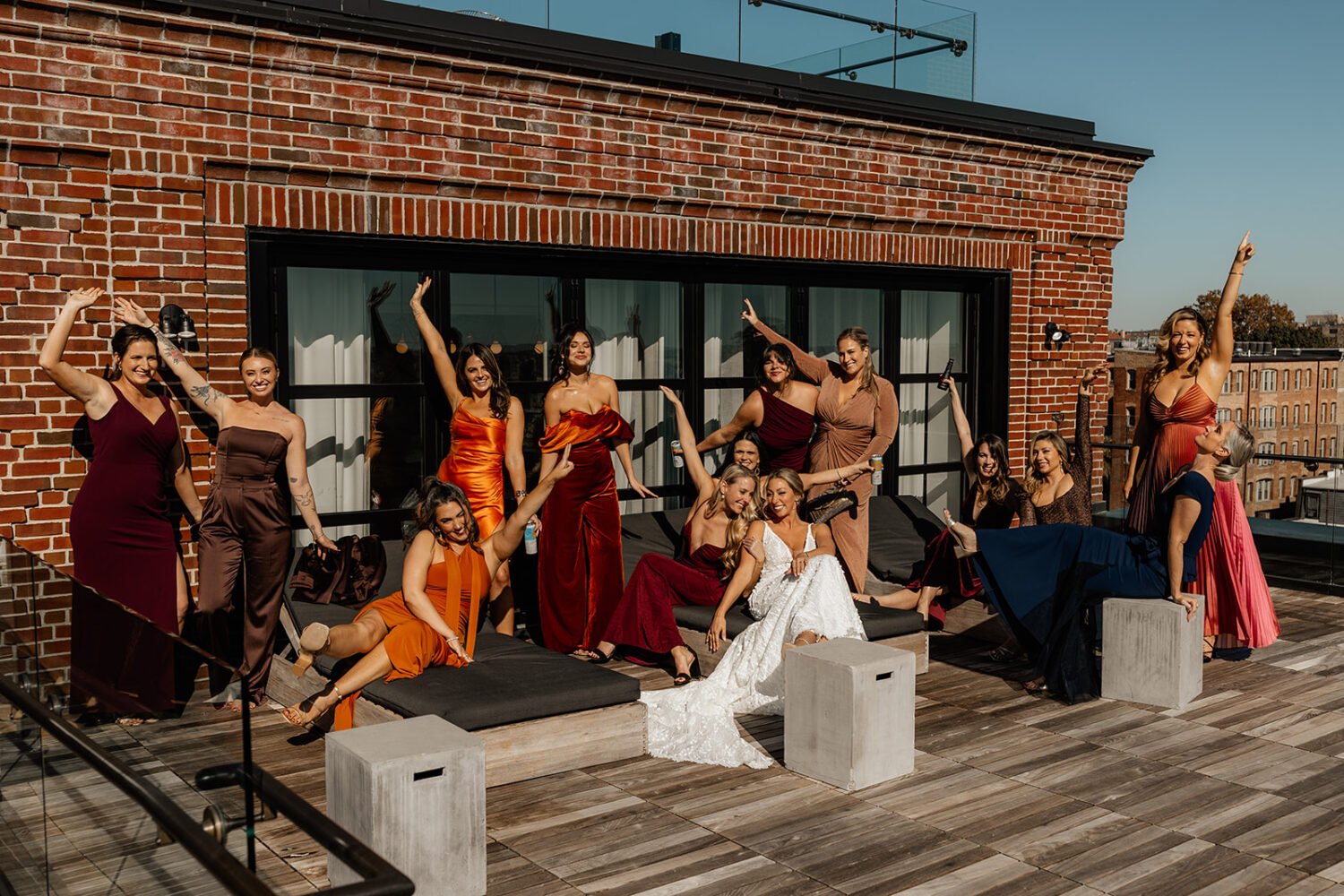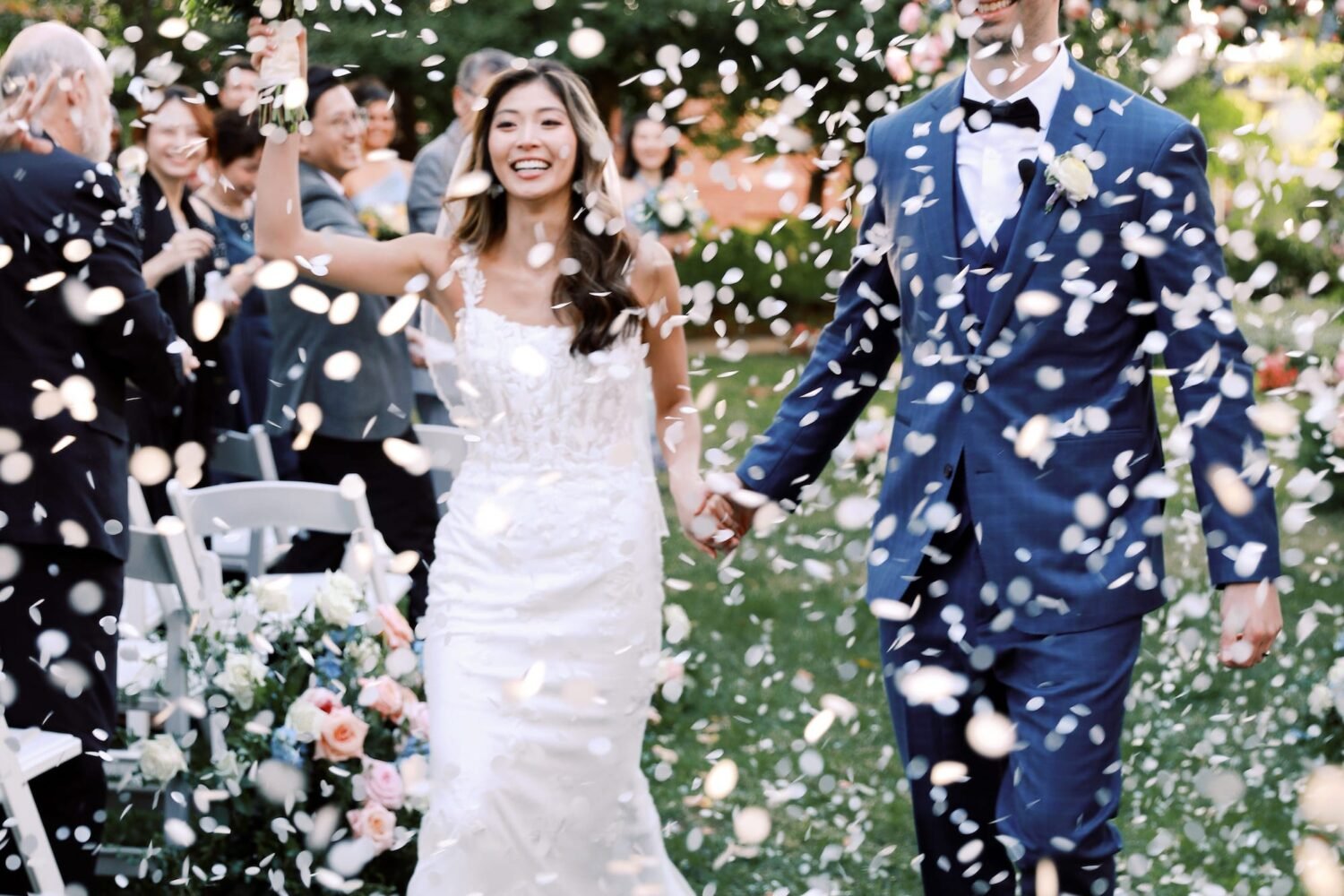Following the mass cancellation and postponement of weddings last year, the wedding industry was abuzz with the belief that a mania of events was on the horizon. Couples had pushed spring 2020 ceremonies to fall, then early 2021. The notion spread that demand would rise so high this year that weekday weddings would become a temporary norm. Couples rushed to book dates they’d deemed far enough out to be “safe,” to beat the frenzy. But now, on the cusp of what is typically (and was hoped to be again) a busy spring season, the year ahead is looking…different.
We surveyed and interviewed dozens of local vendors, including photographers, planners, florists, and caterers, to see how things were shaping up locally. And surprisingly, the feedback was split.
Here’s what we know:
- Some couples are completely cancelling.
- Some couples are postponing, some again.
- Some are holding out hope that Q2 will turn around.
- There’s a lot of pressure on fall 2021.
- Some are pushing nuptials to 2022, which may get filled up with this year’s delayed weddings.
Hang with us here.
First, some couples are calling off the event portion of their weddings.
“We’ve had a handful of 2020 clients just decide to throw in the towel and cancel because they don’t want to move a third or fourth time, or they already had their micro-wedding last year and decided not to do the ‘big’ one this year after all,” Lauren Anderson from Sweet Root Village told us.
The popular industry phrase of 2020, “love is not cancelled,” called for couples to marry in elopements and micro-weddings amidst the pandemic, and save a grand celebration for later. In fact, more than half of vendors we surveyed reported that at least 50 percent of their clients who married last year planned to have a bigger celebration later. Likewise, the respondents said that half of their current 2021 schedule is made up of such post-wedding celebrations, which means that these types of cancellations could wreak havoc on an already devastated industry in an already fraught year. But as that pandemic, and pandemic fatigue, wears on and gathering limits remain low—in Maryland, DC, and Virginia, indoor social gatherings are still capped at 10 people indoors and 25 outdoors—couples are re-thinking those larger celebrations.
“Those that had micro-weddings in 2020 do not want to go from 15 to 25 guests,” says photographer Abby Jiu. “They were planning to have 100 or more.”
Among those looking to postpone are couples set on big guest lists. “The clients who push to 2022 want a large party, 250-plus, with no restrictions and they do not want the headache of the unknown or later changes,” says Kaitlin Przezdziecki of Cheers Darling Events. Others, especially those not already married, are willing to scale back to be married this year, even if it means moving to later this year. But across the board, the hope for any weddings this spring is fading fast.
“So far, I have four couples in the process of changing their date for the second time,” says photographer Terri Baskin.
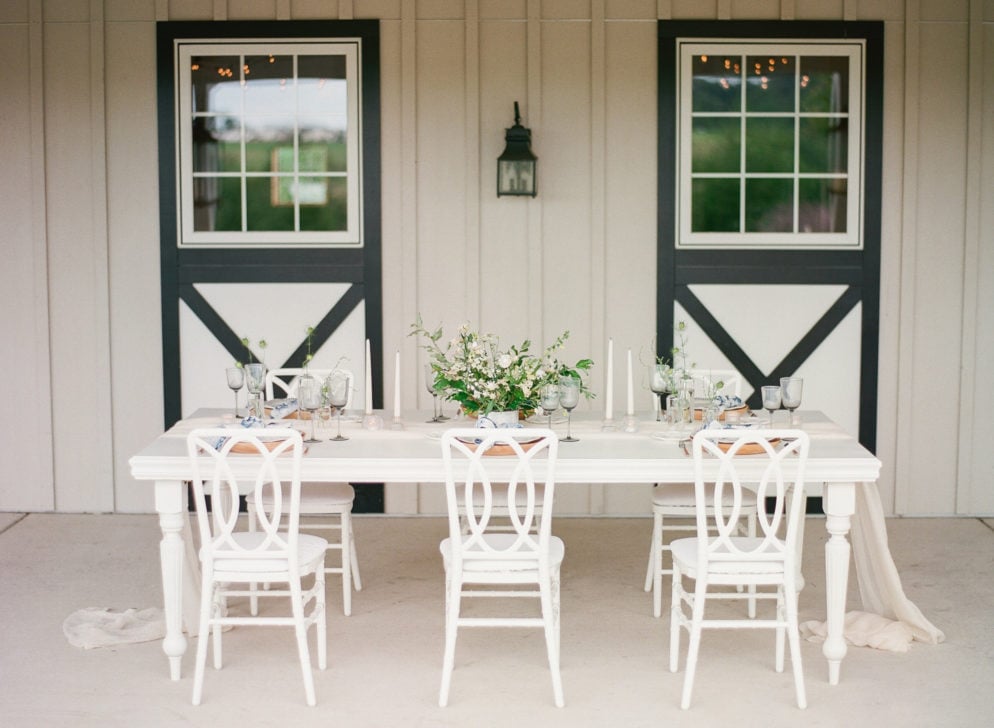
Survey respondents told us that fears about Covid variants as well as travel restrictions both locally and internationally were playing some role in the uncertainty. But with many couples and vendors citing the ability to implement safety protocols—masks, socially distant seating by household, onsite testing, and more—and vaccines rolling out, more vendors said that it’s the “tight cap on guest counts” and the lack of updated guidelines in our area that’s driving the panic. Late last year, the industry was optimistic about 2021, but the planning ahead for spring and summer weddings has fallen in limbo, as gathering restrictions have not begun relaxing locally and there’s been no hint at when they might. (A paradox, many vendors say, compared to the updated restrictions for restaurants and entertainment venues.) Vendors have taken to social media to express frustration with local leadership, warning that couples are hopping state lines to plan big destination weddings. “We’ve had events leave DC for Texas, Wyoming, and Delaware, and are seeing more of this by the day,” says Anderson, who reports that Sweet Root Village’s spring and early summer have been “pretty much wiped out.”
It’s a lot of pressure for fall, which we heard was the primary source of a hoped-for “boom.” “Couples who are scheduled for late July through the end of the year remain hopeful,” says Kawania Wooten, of Howerton + Wooten Events. Margo Fischer of Bright Occasions says she’s had new inquiries for the second half of the year with guest counts at or below 100, and Tabitha Roberts of Roberts & Co. Events notes that she’s seen an influx of last-minute bookings for fall—”potential clients who see light at the end of the tunnel” and want to move quickly.
Situations like that are likely driving the trend of couples planning weddings in less time, six months or less, compared to the more typical year or year-and-a-half. Some who haven’t chosen a date—we hear many are hesitant to book at all—are waiting and ready to pounce on a short-term plan if an opportunity arises.
And many businesses say they’re not in a position to turn away couples after the decimating year they just experienced. More than 70 percent of the vendors we polled said they are taking on more events for 2021 and 2022 than they typically would, both to make up for losses last year and to accommodate both new and rescheduling couples. Though two-thirds of the vendors say their next year is booked farther out than it typically would be in March, what’s filling those calendars is split: Some have mostly rescheduled weddings and others all newly engaged couples. The general hope among vendors, it seems, is that most of their 2021 events will work out, and 2022 will be a fresh(er) slate.
“We are actively avoiding moving any more weddings into 2022,” says Roberts.
Which takes us to… the weekday thing? Yeah, that’s happening—one-third of the vendors we surveyed reported having at least one couple planning to wed on a weekday this year. (We excluded Fridays from that statistic since they’ve long been growing in popularity, and found that Tuesday and Thursdays are the prime mid-week picks). But weekday scheduling is not for the reason we thought. Sure, demand plays some role—vendors have reported clients who are moving to weekday dates in order to get their first-choice venue in the first-choice month or season—but others have offered reasons that have more to do with policies of vendors.
“I don’t charge fees to move to a weekday,” said photographer Kir Tuben. “I charge new pricing for a prime Saturday and have seen other vendors do the same.”
Jamésa Alexander of Jayne Heir Weddings & Events is working with a couple that moved to a Thursday when their venue was unable to accommodate another Saturday in 2021. The particular Thursday, though, is a federal holiday, she says, and the clients are making the wedding a multi-day affair through the weekend.
Also trending this year: more Fridays (one planner said a couple moved from an off-season Saturday to an in-season Friday when they rescheduled, because the venue was willing to offer the same rate), Sunday brunches, weddings in “off” months like July and December, and weddings on what would normally be unpopular days such as Mother’s Day, Easter, and Fourth of July.
As businesses try to stay afloat, couples are trying to avoid lost deposits and unanticipated costs.
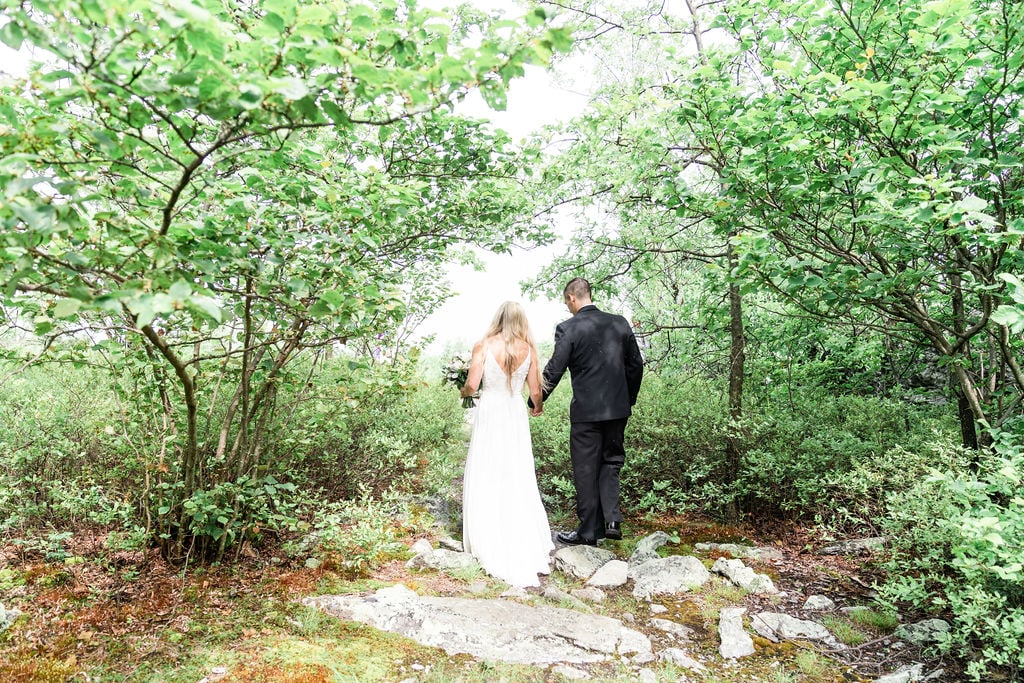
In all though, there doesn’t seem to be total consistency.
“I have some dates I could have sold three times over and then I still have open Saturdays in September,” says Sara Bauleke of Bella Notte.
It’s a bit of a tug-of-war—some couples willing to postpone now, and many vendors urging patience.
“Planners are trying hard to hold on to original dates because finding another date for the whole [vendor] team is a nightmare,” says photographer Liz Fogarty.
The emotional toll is high, and it’s shared between engaged couples and vendors.
Wedding-planning can be stressful, and over the last year couples have navigated it with (to varying degrees) added factors of restrictions and closures, risk assessment, safety protocols, and the brand new etiquette of postponing and uninviting—in addition to the non-wedding-related parts of the pandemic. Many have grappled with disappointment; others have experienced wedding-specific financial loss—website Loanry.com estimates that American couples are paying on 3.7 billion dollars in loans for weddings that never took place.
On the vendor side, planners, one photographer said, are bearing the brunt of it in managing all the changes. “They are playing the role of chief logistics officer and family therapist while oftentimes not being in a position to charge additional for the incredible amount of time and effort required to make the changes happen,” says photographer Eli Turner.
Tuben said that while she’s thankful for her job and her health, and has been inspired by couples “determined to get married come hell or high water,” she feels like the pandemic has shifted the perspectives on weddings by clients and vendors, and the scheduling has left longer-lasting repercussions. “There are a lot of couples who are ‘over it’ in terms of wedding planning and feel salty about the process—and, in some cases, their vendors, who had to stick to some financial policies in order to stay in business… As a business owner, I often put my clients first and Covid reschedules have effectively determined my life for the foreseeable future and have postponed my decision to take time off and potentially start a family. I am beyond thankful for my health, I value the safety of others, and I never want to seem ungrateful, but there is weight to the otherwise light-hearted client/vendor relationships like never before as we soldier on into yet another unanticipated year of pivoting, rescheduling, and uncertainty.”

